
Jeffrey Powell
Jeffrey R. Powell did his undergraduate work at the University of Notre Dame where he started working on the mosquito Aedes aegypti under the direction of George B. Craig. In 1969 he went to graduate school at The Rockefeller University where he began empirical population genetics studies of Drosophila under the mentorship of Theodosius Dobzhansky. He obtained his Ph. D. in 1972 from the University of California, Davis, where he moved with Dobzhansky in 1971. He began as an Assistant Professor at Yale in 1972 and has been on the faculty since. He has spent sabbatical leaves at the University of California (Riverside), University of Rome, California Institute of Technology, and Cambridge University. He continues to work on Drosophila and mosquitoes, while initiating in 1991 a research program on genetics of Galápagos tortoises that has taken on a life of its own. His major interests are basic issues of evolutionary genetics and molecular evolution largely using Drosophila as a model organism and application of genetic technologies and concepts to mosquitoes to aid in control of diseases they transmit. He has mentored 23 Ph. D. students to completion, 24 postdoctorals, and >40 undergraduates, as well as hosted six sabbatical visitors.
Less ![]()
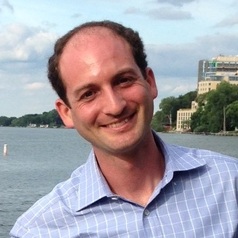
Jeffrey W Paller
Post-doctoral Research Fellow, Columbia University
I am a postdoctoral research fellow at the Earth Institute at Columbia University, working with the Center for Sustainable Urban Development. I use ethnography, focus groups, surveys, and experimental methods to examine the political conditions under which democratic activity and accountability develop in poor urban communities. I received my PhD from the University of Wisconsin-Madison in the department of political science in 2014. My dissertation received the 2014 African Politics Conference Group-Lynne Rienner Award for Best Dissertation in African Politics. My research has been funded by the Social Science Research Council, National Science Foundation, and the University of Wisconsin. I was a Research Associate at the Center for Democratic Development in Ghana in 2012. Prior to graduate school, I graduated with honors from Northwestern University and served as a Program Coordinator for the Illinois Education Foundation. During the academic year 2014-15, I was a Visiting Lecturer of Politics at Bates College. In 2016, I will be an Assistant Professor of Politics at University of San Francisco.
Less ![]()

Jeffrey W. Rubin
Associate Professor of History, Boston University
A specialist on social movements in Latin America, Rubin combines innovative methodological approaches with the study of democratic possibility in Latin America over the past thirty years. Rubin’s work is ethnographic, collaborative, interdisciplinary, and transnational.
Jeffrey W. Rubin is the author of Decentering the Regime: Ethnicity, Radicalism, and Democracy in Juchitán, Mexico (Duke 1997), co-author of Sustaining Activism: A Brazilian Women's Movement and a Father-Daughter Collaboration (Duke 2013), and co-editor of Enduring Reform: Progressive Activism and Business Responses in Latin America's Democracies (Pittsburgh 2014), Lived Religion and Lived Citizenship in Latin America's Zones of Crisis (Latin American Research Review 2014), and Beyond Civil Society: Activism, Participation, and Protest in 21st Century Latin America (Duke, forthcoming).
Rubin’s current project, Seeing and Not Seeing: Essays on Democratic Possibility in Latin America and Beyond, argues that in order to understand the dynamic and unstable mixes of democracy and violence, economic expansion and continuing exclusions, that characterize Latin America today – and to discern possibilities for and limits to progressive reform in this context – it is essential to conceptualize historical forces and political actors not as coherent and bounded, but rather as made up of multiple and changing forces, strands, and cultures.
Less ![]()

Jeffrey B. Blumberg
Professor Emeritus in Nutrition Science and Policy, Tufts University
Jeffrey Blumberg is a Professor in the Friedman School of Nutrition Science and Policy and also serves as a Senior Scientist in the Antioxidants Research Laboratory at the Jean Mayer USDA Human Nutrition Research Center on Aging at Tufts University. His research is focused on the biochemical basis for the role of antioxidant nutrients and their dietary requirements in promoting health and preventing disease during the aging process via changes in status of oxidative stress, glucoregulation, and inflammation. He has published more than 400 scientific articles and serves on the editorial boards of several scientific journals.
Less ![]()

Jeffrey C. Sun
Distinguished University Professor of Higher Education and Law, University of Louisville
Jeffrey C. Sun, J.D., Ph.D., is distinguished university professor of higher education and law and associate dean for innovation and strategic partnerships at the University of Louisville. He is also Counsel at Manley Burke. His research and practice areas focus on higher education law and professional/career education policies and practice. Dr. Sun has served as Project Director and Principal Investigator for over $25 million in externally funded grants. He has published approximately 100 scholarly works and is co-author of eleven books.
Dr. Sun received his law degree (J.D.) from the Moritz College of Law at The Ohio State University and an M.Phil. and a Ph.D. from Columbia University.
Less ![]()

Jeffrey I. Seeman
Visiting Research Scholar in Chemistry, University of Richmond
Dr. Seeman's professional activities include research in the history, philosophy, and sociology of science including responsible conduct of research. He also produces and directs videos for educational and historical purposes.
Less ![]()

Jehana Copilah-Ali
Research Associate, Newcastle University
Dr Copilah-Ali is a Research Associate at Newcastle University Business School where she researches and promotes Corporate Digital Responsibility (CDR) and digital ethics on multi-disciplinary research teams spanning computer science, social sciences, and law. She is a certified Data Ethics Professional with the Open Data Institute.
Her PhD is in the area of Critical Entrepreneurship Studies, focused on the representation of entrepreneurs in popular culture (covering reality television, social media, and memes). She continues to pursue research on the representations and discourse of business in popular culture.
Less ![]()

Jekaterina Schneider
Research Fellow, University of the West of England
Dr Kat Schneider (she/her) is a Research Fellow at the Centre for Appearance Research (CAR) at the University of the West of England. She has a PhD in Sport & Exercise Psychology from Liverpool John Moores University, as well as a master’s in Psychology and a bachelor’s in Sports Science with Management from Loughborough University. In her current role at CAR, she is primarily involved in developing and evaluating body image interventions for coaches and girls in sport, with the goal to create safe, inclusive, accepting, and body positive sport environments for girls around the world. Kat also works across multiple projects aimed at improving body image among different populations and in various contexts, such as in sport, education, and digital media environments. Kat is the principal investigator on a project exploring weight bias and weight stigma among fitness professionals, with the overarching aim to create size and body inclusive fitness spaces. This research will explore fitness professionals’ willingness to engage in weight bias interventions and features that will lead to intervention uptake, completion, and maintenance of outcomes, with the long-term goal to develop and evaluate an anti-weight bias intervention for fitness professionals. Aside from her current role, Kat is also involved in the Crisis and Resilience Expertise (CaRE) group at Edgehill University, where she has conducted multiple systematic reviews on the impact of the COVID-19 pandemic and other global crises on mental health and well-being outcomes, including the effect of pandemics on the psychological well-being of healthcare workers, the effect of inequality on mental health disparities during the COVID-19 outbreak, and the impact of national and international financial crises on population-level mental health and well-being outcomes.
Less ![]()

Jemma Clifton
Research officer, UNSW Sydney
Jemma attained her Bachelor of Psychology (Honours) in 2018 and worked on a PhD on the cognitive neuroscience of mind wandering for a few years before taking a break from research to focus on her gender affirmation journey. She is currently employed as a Project Officer for Northern Sydney Local Health District implementing the NSW Health LGBTIQ+ Strategy. She is also a research officer at UNSW publishing research on a Personalised-Autonomous Model of English-Language learning for International Students.
Less ![]()
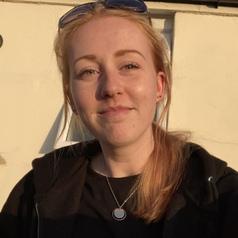
Jemma Forman
PhD Candidate in Psychology, University of Sussex
I am currently a Psychology PhD student at the University of Sussex. I have a strong interest in domestic animal cognition and ethology, specifically in domestic cats, and have an interest in the scientific methodologies that we use to carry out species-specific experimental research.
Less ![]()


Jemmy Bouzin
PhD candidate, Curtin University
I have a background as an analytical chemist and over 12 years of working experience as a forensic chemist. This includes crime scene investigation, latent fingermark chemistry, and analysis and interpretation of physical trace evidence. I am currently a PhD candidate at Curtin University, Australia, where my research focuses on sustainable forensic science provision, particularly fingermarks detection provision in small and remote-location jurisdictions.
Less ![]()

Jen Kostuchuk
PhD Student, Sociology, University of Victoria
My research focuses on the intersection between labour rights and climate justice, precarious work, gendered roles, and green jobs.
Beyond academia, I was the climate and labour project coordinator with the Worker Solidarity Network. In this role, I conducted community outreach, hosted educational workshops, and advocated for improved labour standards in the face of climate change - specifically collaborating with non-unionized workers in British Columbia.
Less ![]()


Jen Muggleton
Principal Research Fellow in Engineering and Physical Sciences, University of Southampton
Jen Muggleton is a Principal Research Fellow in the Dynamics Group within the Institute of Sound and Vibration Research (ISVR) in the Faculty of Engineering and Physical Sciences. Her main research interests are wave propagation in pipes and in the ground, particularly relating to leak detection and the detection of buried objects. She is currently working closely with UK Water Industry Research (UKWIR) on their ‘Zero Leakage 2050’ initiative as well as focusing on the use of optical fibre technology for pipeline leak detection.
Less ![]()

Jen Roberts
Senior Lecturer, School of Humanities and Social Inquiry, University of Wollongong
Jen Roberts (PhD) is a senior lecturer in the School of Humanities and Social Inquiry, University of Wollongong.
Her interests include:
- Australian history
- humanitarian disasters, conflict and peace building
- psychological effects of war, including shell shock and PTSD
- social history of health and psychiatry.
She has published in the field of Australians' experience of death and bereavement in the wake of World War 1.
Less ![]()

Jen Webb
Director of the Centre for Creative and Cultural Research, University of Canberra
Jen Webb is Distinguished Professor of Creative Practice, and Director of the Centre for Creative and Cultural Research in the Faculty of Arts and Design. Her current research includes an ARC-funded investigation of creative practice (using poetry as a case study), and an ARC-funded investigation of outcomes for graduates of creative arts degrees.
Less ![]()

Jen Wilson
Senior Exercise and Health Practitioner, Nottingham Trent University
Dr Jen Wilson is a Senior Exercise and Health Practitioner at the Sport and Wellbeing Academy, Nottingham Trent University. She has a research background in running performance and injury risk, as well as physical activity for disease prevention.
She is a trustee for the FiiT for Life Charity, which seeks to support those living with chronic disease. In addition, she is an active Sports Therapist and Strength and Conditioning Coach.
Less ![]()

Jen Cole Wright
Professor of Psychology, College of Charleston
Dr. Wright received her Ph.D. in Developmental Psychology and M.A. in Philosophy from the University of Wyoming, doing most of her undergraduate work at Bennington College and the University of Colorado, Boulder. She specializes in moral psychology, studying the development and function of virtue (with a particular focus on humility), and the ways children, adolescents, and adults navigate the moral domain, including how the process and react to moral differences and disagreement. She has published over fifty articles and four books, including A Psychological Perspective on Folk Moral Objectivism (2023, Routledge Press), Understanding Virtue: Theory and Measurement (2020, Oxford Press), an edited volumes on Humility (2019, Oxford Press), and Advances in Experimental Moral Psychology (2014, Bloomsbury Publishing). Of particular interest to Dr. Wright is how people understand the nature and function of morality and how they use it to shape, control, and protect collective well-being and individual autonomy, balancing between promoting a diversity of beliefs, values, and practices, while discouraging (and prohibiting) those beliefs, values, and practices that cause harm.
Less ![]()

Jenae Harris
Lecturer in Criminal Justice, Kennesaw State University
Jenae Harris is a criminologist and educator. She is currently a lecturer in Criminal Justice at Kennesaw State University and a doctoral student at the University of North Georgia. Her areas of interest include the criminal law and the intersection of crime and hip hop, entertainment, and popular culture.
Less ![]()

Jenefer Metcalfe
Lecturer in Biomedical Egyptology, University of Manchester
My background in both ancient history and archaeological science is quite multidisciplinary, something which reflects itself in my research interests, and allows me to combine archaeological, historical and scientific sources in my work.
The Archaeological Survey of Nubia
The first Archaeological Survey of Nubia (or ASN) was one of the earliest rescue archaeology projects to take place and also one of the first large-scale studies of the ancient Nubian population. Due largely to the efforts of Sir Grafton Elliot Smith many of the human remains that were found during the excavation were retained for future study. The ASN material is extremely important as it includes many rare examples of disease and remains largely provenanced, something which is very rare in a collection of this age. Sadly, the human remains are now spread throughout the world. I am currently trying to bring this collection back together virtually and reunite the human remains with their archaeological and historical provenance.
Radiocarbon dating and artefact provenance
The issue of artefact provenance and dating is a particular research interest, and was the subject of my PhD. Radiocarbon dating has the potential to clarify a number of questions we have about the chronology of ancient Egypt, the development of mummification and the environmental changes that affected North Africa during the pharaonic period. The technique is currently under-exploited in this area due to problems in the past with poor sample choice and preservation issues. I am interested in the development of protocols for sample selection in this research area, in particular for the dating of Egyptian mummies. One aspect of this research that I hope to develop is the issue of taphonomy and the effects this has on artefact survival and suitability for long-term study.
Dietary sources in ancient Egypt and Nubia
A long-term research interest is ancient Egyptian and Nubian diet and the impact that influences such as political or environmental change may have. Although changes that have the potential to have affected food availability are well documented from both areas, the impact these have actually had on humans or animals are unknown. I am interested in whether stable isotope analysis of well-provenanced samples can begin to alter this picture and if isotopic studies of food sources themselves can refine our understanding of ancient human diet.
Less ![]()

Jenessa Williams
PhD candidate, Media and Communication, University of Leeds
Jenessa Williams (she/her) is a PhD Candidate in the School of Media and Communication at the University of Leeds. Her research specialisms are in music, race, gender, internet cultures and social media activist movements such as #BlackLivesMatter and #MeToo.
She began her doctoral research in October 2019, exploring the issue of ‘problematic’ music fandom in the wake of the #MeToo movement and questioning how music fans attempt to reconcile with morally-transgressive art/artists. Within this study, Jenessa explicitly compares and contrasts online discussion within Hip-Hop and Indie/Emo communities, illustrating how race, gender and social convention intersect with perceptions of victim believability, social retribution/rehabilitation and cancel culture.
Alongside academia, Jenessa also works as a music and culture journalist, and has been published by the likes of the Guardian, NME, Readers Digest, Alternative Press, Rolling Stone UK, DIY, Gal-Dem and the BBC.
Less ![]()

Jennah Green
Wildlife Research Manager at World Animal Protection, and Visiting Research Fellow, Manchester Metropolitan University
Jennah is a visiting research fellow at Manchester Metropolitan University and a wildlife research manager at World Animal Protection. Her main research area of interest is the commercial use of wildlife, in particular the welfare of wild animals in captivity and trade. Her work covers a range of issues relating wildlife trade, particularly the global wildlife farming industry, as well as the use and trade of wild animals for entertainment, traditional medicine, and as exotic pets. Her previous publications have focussed on these topics through the lens of animal welfare, zoonotic disease, and public and corporate policies.
Less ![]()
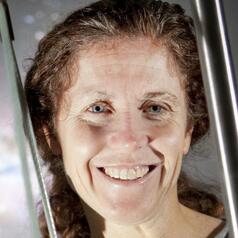
Jenni Adams
Professor, Physics and Astronomy, University of Canterbury
My research is in the areas of astroparticle physics and cosmology. Astroparticle physics involves research at the interface of astronomy and particle physics. It is a synergy which operates in both directions; particle physics is applied to better understand astrophysical objects as well as using the Universe as a laboratory for high-energy physics.
My group are members of the IceCube collaboration which operates the IceCube neutrino observatory at the South Pole. Our collaboration has achieved a series of break-through results discovering astrophysical neutrinos in 2013 and identifying the first source of these neutrinos in 2017.
Less ![]()

Jennie C. Stephens
Jennie C. Stephens is the Blittersdorf Professor of Sustainability Science and Policy at the University of Vermont’s Rubenstein School of Environment and Natural Resources and the College of Engineering and Mathematical Sciences. Professor Stephens’ research, teaching, and community engagement focus on socio-political aspects of energy technology innovation, electricity system change, climate change communication, and facilitating social learning in the transition from fossil-fuel to renewables based energy systems. She has contributed to understanding the social dynamics of wind power, carbon capture and storage, and smart grid, and brings experience in stakeholder engagement and communication among experts, practitioners, academics, and the public.
Professor Stephens was previously on the faculty at Clark University (2005-2014), and she did post-doctoral research at Harvard’s Kennedy School (2002-2005). She earned her PhD (2002) at Caltech in Environmental Science and Engineering and her BA (1997) at Harvard in Environmental Science and Public Policy.
Less ![]()
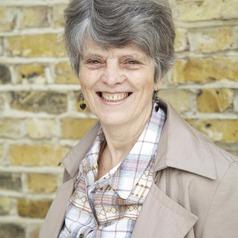
Jennie Popay
Professor of Sociology and Public Health, Lancaster University
I am a sociologist whose primary interest is in research illuminating social, economic and environmental causes of socio-economic inequalities in health. I have a particular interest in how 'lay experiential knowledge' (what Aristotle labelled practical wisdom) can illuminate these pathways and whether initiatives aimed at enhancing the collective control disadvantaged people have over decisions that impact on their lives can promote health
Less ![]()

Jennifer Ahn
Assistant Professor of Urology, School of Medicine, University of Washington
Dr. Ahn is an Assistant Professor of Urology at the University of Washington. She earned her bachelor’s degree from Harvard University and went on to complete her medical degree at the University of Maryland School of Medicine. She completed urology residency training at New York-Presbyterian/Columbia University in New York, NY and pediatric urology fellowship at Seattle Children’s Hospital. She obtained a master’s degree in Health Services at the University of Washington. Her clinical and research interests include genitourinary reconstruction, health disparities, and quality improvement in Pediatric Urology.
Less ![]()
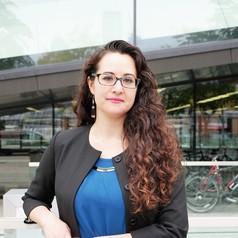
Jennifer Brant
Assistant Professor in Curriculum, Teaching and Learning, University of Toronto
Jennifer Brant, first and foremost a mother of two boys, belongs to the Kanien’kehá:ka (Mohawk Nation) with family ties to Six Nations of the Grand River Territory and Tyendinaga Mohawk Territory. Jennifer is an Assistant Professor at the Ontario Institute for Studies in Education, University of Toronto. Her work focuses on Indigenous Maternal Pedagogies and creating ethical spaces for cross-cultural and anti-racist dialogue. For Jennifer, working on “Forever Loved: Exposing the Hidden Crises of Missing and Murdered Indigenous Women and Girls in Canada” was a call for an immediate and effective response to racialized and sexualized violence. Jennifer positions Indigenous literatures as powerful narratives that humanize Indigenous peoples through multiple calls for justice, and accountability and extends this revolutionary body of work to inspire resistance, rebirth and renewal.
Less ![]()

Jennifer Brenton
Postdoctoral Research Fellow, Erb Institute for Global Sustainable Enterprise, University of Michigan
Jennifer Brenton is a Postdoctoral Research Fellow with the Erb Institute for Global Sustainable Enterprise. She earned her PhD in Management from Memorial University of Newfoundland and was an External PhD Scholar at the University of Cambridge Judge Business School. Her research interests include place, social enterprise, community-based enterprise, and cross-sector work. Jennifer’s research explores the role of place in shaping social enterprises and cross-sector partnerships and how place-based organizations can drive community regeneration and development. In addition to her research, Jennifer has worked as a social enterprise consultant on topics of governance, business plan development, and marketing.
Less ![]()

Jennifer Carson
Professor of Criminal Justice and Criminology, University of Central Missouri
Dr. Jennifer Varriale Carson serves as the Director of the Honors College and is also a Professor of Criminology and Criminal Justice at the University of Central Missouri. She holds a Ph.D. and M.A. from the University of Maryland in Criminology and Criminal Justice and a B.S. in Child Psychology from the University of Minnesota. Dr. Carson's work is focuses on her policy evaluation through the use of quasi-experimental and experimental methods, with a concentration on U.S. counterterrorism efforts and can be found in a number of academic outlets including the Journal of Research on Crime and Delinquency, Criminology and Public Policy, and the Journal of Quantitative Criminology and has been featured in Congressional Quarterly Researcher, the New Scientist, and Bloomberg News. She has also served as the Executive Counselor for the American Society of Criminology’s Division on Terrorism and Bias Crimes and was the recipient of the Academy of Criminal Justice Sciences’ Bracey/Joseph New Women Scholar Award.
Less ![]()

Jennifer Catto
Associate Professor of Mathematics and Statistics, University of Exeter
I use a combination of observations and models to understand high impact weather systems in the present and and future climate in order to improve climate resilience and improve disaster reduction.
Less ![]()

Jennifer Challenor
Lecturer of Games Art, Staffordshire University
My name is Jennifer Challenor and I am a lecturer of Games Art at Staffordshire University. Currently I am studying a PhD in the impact of Augmented Reality on Memory Retention for History and Heritage education, specifically regarding how the technology can be used to potentially improve education on the Holocaust.
Less ![]()
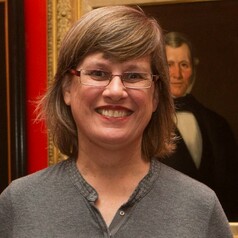
Jennifer Clark
Professor of History, University of Adelaide
I have a BA (Hons I, University Medal) with majors in English and History, PhD in History and a Dip Ed from University of Sydney. My thesis was on American History but I work more in Australian History now including Museology and History Pedagogy. I was a Harkness Fellow to University of Pennsylvania and, most recently, a Redmond Barry Fellow to State Library of Victoria. I was until recently Head of the School of Humanities, University of Adelaide.
My research fields cover post war Australian history especially 1950s-60s, museology, automotive history, memorial culture and history pedagogy.
Less ![]()

Jennifer Creese
Lecturer in the Department of Population Health Sciences, University of Leicester
I am a social anthropologist with a focus on healthcare, particularly professional and organisational cultures of healthcare work, health worker migration, and ethnic/minority experiences in health. I hold a PhD in Social Science from The University of Queensland, Australia (2020) specialising in social anthropology and ethnography. I have previously held research positions studying migration experiences, health care resilience, and dementia family care in Australia, and held a postdoctoral fellowship in 2020-21 at the Royal College of Physicians of Ireland, before joining the University of Leicester in 2022. My research focuses on health workers' experiences of work, particularly around workplace communication and voice, and staff wellbeing and support.
Less ![]()
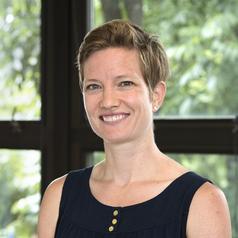
Jennifer DeBruyn
Professor of Environmental Microbiology, University of Tennessee
Jennifer DeBruyn is an environmental microbiologist at the University of Tennessee Institute of Agriculture. She studies the decomposition of human and animal mortalities and contaminant biodegradation. She co-directs “Backyard STEM”, a curriculum program for Tennessee 4-H agents focused on environmental-science education for youth.
Less ![]()
- Market Data























